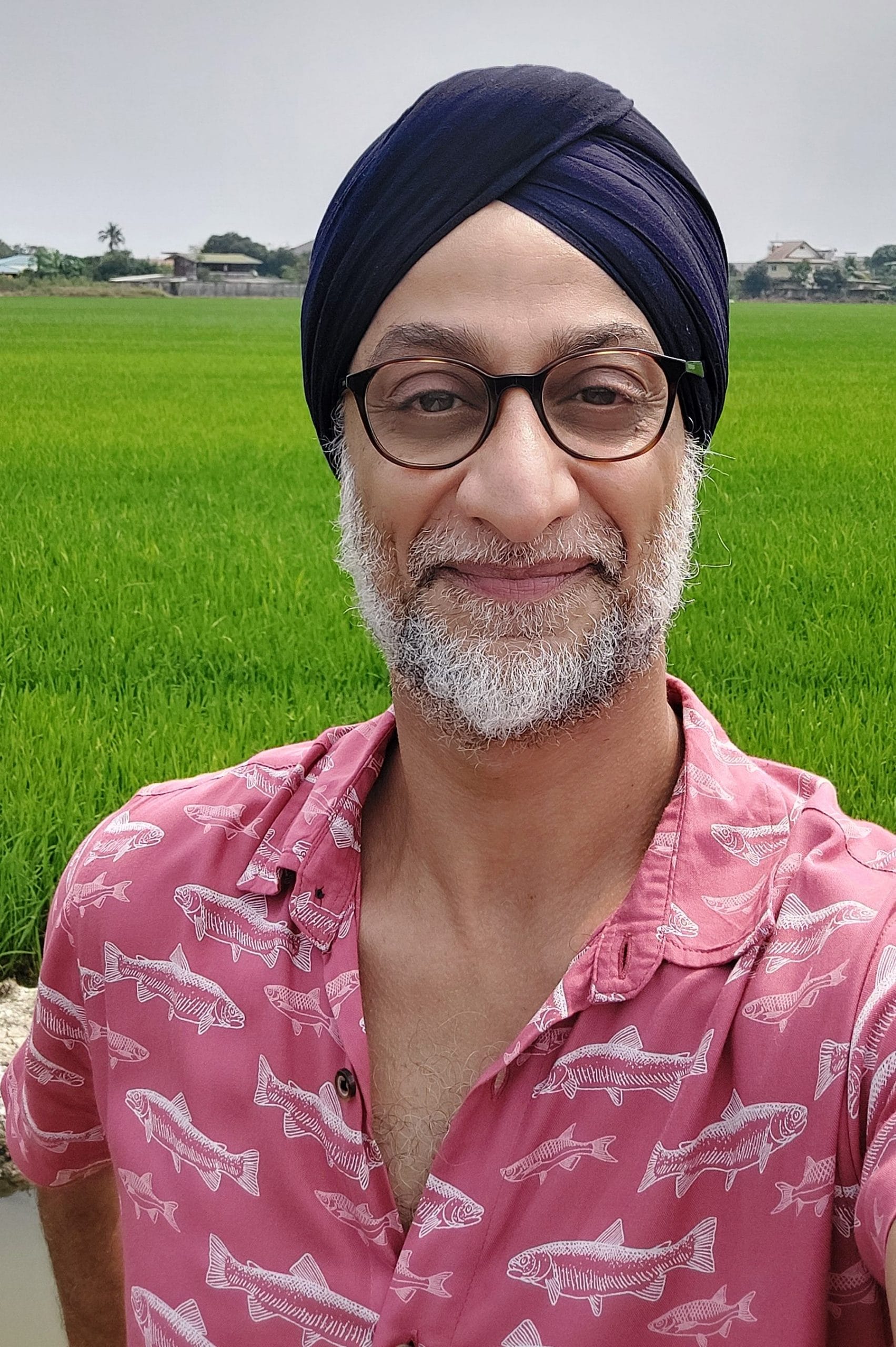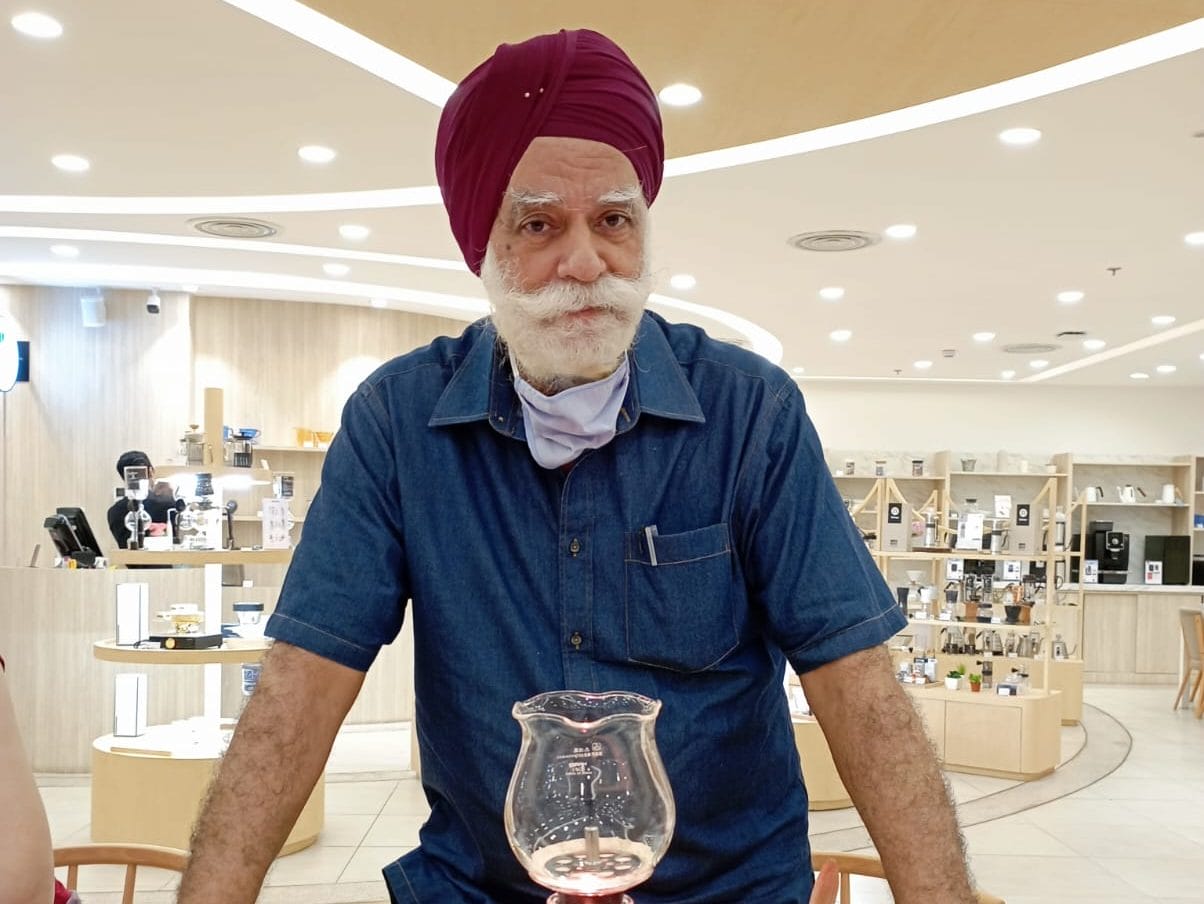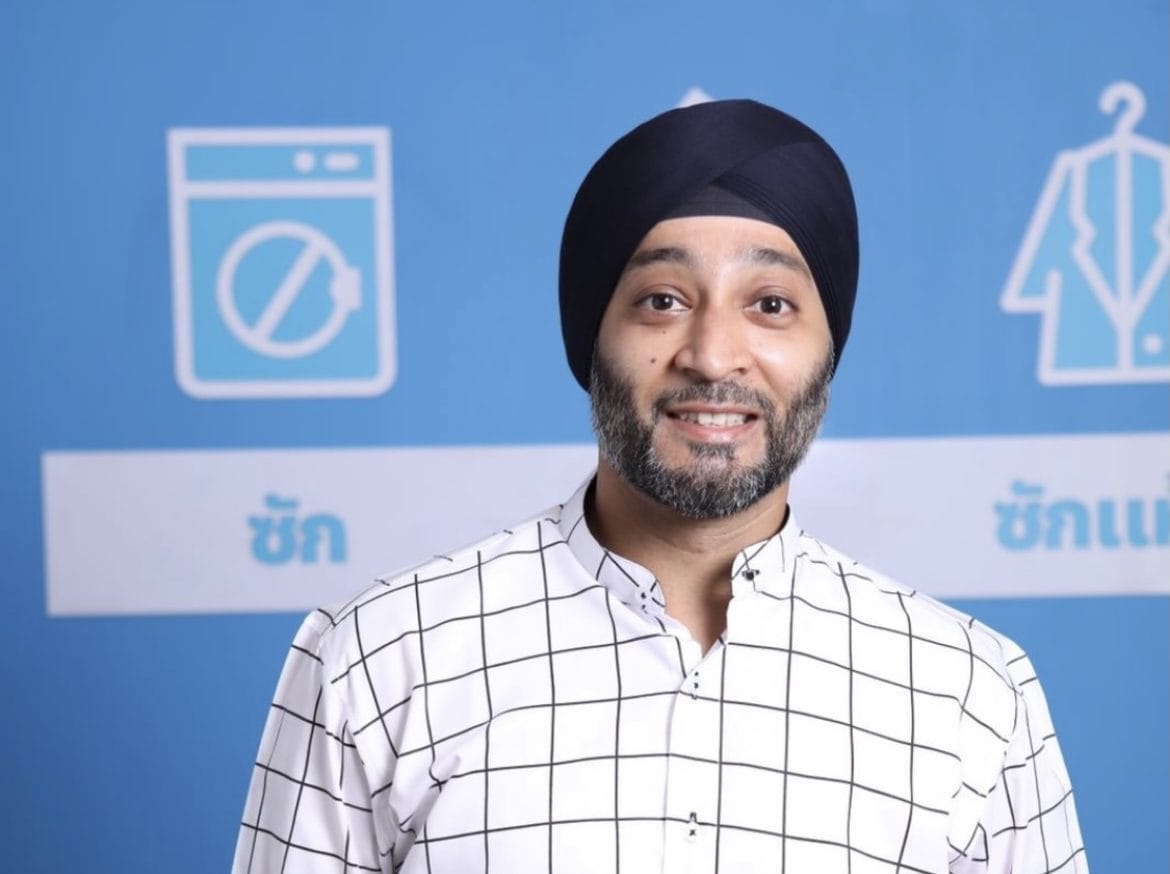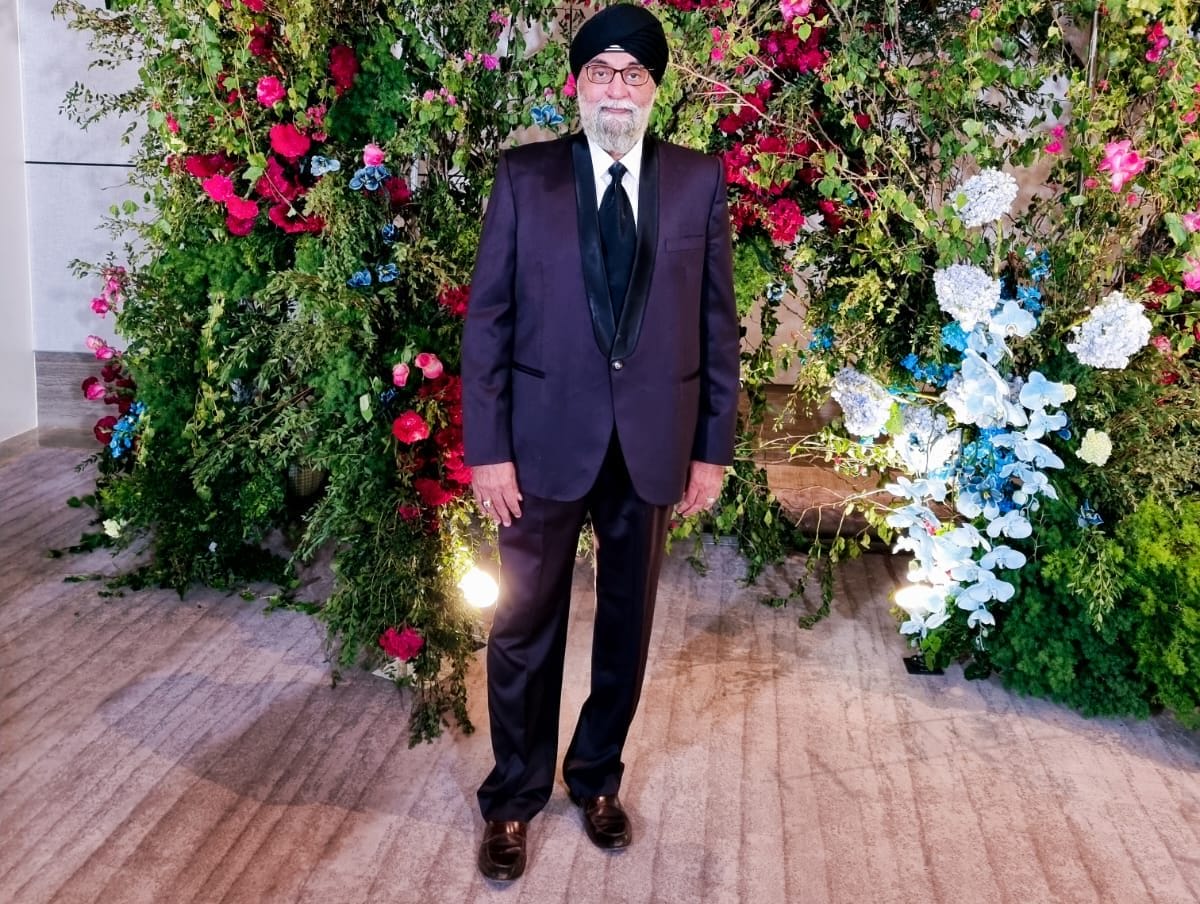Hard-won gems of advice.
By Aiden Jewelle Gonzales and Shradha Aswani
As staunch feminists, it’s easy to be blinkered by everyday institutional misogyny, forgetting that the presence of the patriarchy doesn’t mean that men don’t face their share of unique pressures and expectations, especially in such a close-knit community. These can span the financial arena, with the traditional expectation that they be the breadwinner of the family, or even that they pay for the first date; social areas, such as the pressure to get married by a certain age but be well-established before they do so, or the outdated belief that men should keep a ‘stiff upper lip’; and even body image expectations, especially with the advent of TikTok and influencers with perfect skin, six-pack abs, and the same hairstyle across the board.
We’ve reached out to Thai-Indian men who’ve given us their insight into the expectations that have moulded them through the years, how these have changed as society has evolved, and the big and small ways that they’ve broken free of the boxes that society has put them in.
They also share candid advice for other men in the community, based on their experiences.
RAVIN KOKNUTPHONGCHAI, 48
Ever since our childhood, we are trained to handle the pressures and expectations that will be placed on us upon entering adulthood. We are taught by our parents, educators, extended family members, peers and the media. Schools teach us how to prepare for deadlines, to compete, and to collaborate and work in teams; parents warn us of the dangers of the world, and act as examples of hard work and responsibility. Then how come at some point in our adult lives, many of us find ourselves on the therapist’s couch, in a burn-out crisis, unable to handle the pressures of life?
We men do face pressures in our lives, though I don’t want it to come across as a complaint. Women face manifold more pressures from all angles, but men’s main pressure is the ‘f’ word – the one that involves paying the bills and being the family head. Other pressures including conforming to your family’s, friends’
and society’s expectations of what a Thai-Indian male is supposed to be like, which establishments to hang out in, and what interests to have.
I don’t necessarily think pressure is a bad thing – there is the good and necessary kind, and the stress-accumulating, anxiety-raising, depression causing, bad kind. We all need some pressure to perform well, like a tyre needs pressure for a car to have a smooth ride on the road; but if the pressure keeps rising, the tyre will burst.
The bad kind creeps up when our lives are pushed in a certain direction, influenced by thoughts and ideas that have entered through the back door. Personal examples include my elders’ attitudes during my childhood that I am supposed to enter into the family business, and that all other interests, such as music and nature,
are for time pass and not serious career choices.
Or society’s view at the time that attending a US-based university would set your future up better than a local college. Or even the definition of what success is, defined by the media, friends, etc. I made life decisions based on these unstated assumptions, and before I realised it I was in situations where I’m working hard doing my best at something I don’t really enjoy, wondering why it’s not a success and why I was always anxious and miserable. It’s because my decisions were not based on my own interests and strengths, but on subtle influences from my childhood through to my teenage years. In addition, for me, growing up in Japan, the pressure was to conform. That’s what Japanese kids do, and that’s how society there functions smoothly and successfully. Imagine me, as a Sikh, Thai-Indian kid trying to conform to the Japanese culture, and the bad kind of pressure build-up there!
Over the years, I have grown to make more of my own decisions, and to be more of myself, making decisions without any external influences and expressing my own thoughts and opinions. After all, there is only one of me, so why should I try to be someone else?
My advice to the youth and young adults is to be aware of the subtle influences from family, society and the media. Don’t let them lead you astray. Be aware of your deep strengths, unique perspectives, and personal interests. They don’t have to be passions (passion is often overrated). These unique facets of your identity will instinctively lead you in the right direction and to where you need to be to have a successful and fulfilling life.
Then you will welcome and thrive in pressure, the good kind.
INDERPAL SINGH SIDHU, 33
With changing dynamics in families and lifestyles, I think a lot of the focus has been on women and their milestones, but men have also had their adjustments to make. We don’t mind, but we are also trying to accommodate all these changes whilst still holding on to our own expectations for ourselves that may not have altered so much – like being the breadwinner of the family.
Before my wife and I got a place of our own, our household responsibilities looked different because we lived in a joint family. Everyone had their own little chores and they were not very equal because my mum is a stay-at-home-mum and my wife finished her work significantly earlier than me in the day, so she would handle dinner on her own.
However, once we moved out, we both had to readjust and find our routine with household chores, and manage expectations of what ‘cleanliness’ meant or what tasks we needed to prioritise with both our work schedules, while also having a child to run after.
I now had to do the dishes while my wife put our son to bed, or I would fold the laundry while my wife was heating up the food – and these are tasks I didn’t necessarily have to do very often before. For what it’s worth, these new ‘pressures’ made us closer. It’s made us more intimate because we end up investing into the mundane of our lives together, as a unit.
CHAN KOGHAR, 66
For the men in our generation, the pressure was primarily from our family, and the main expectation was to carry the flag forward. If your father made a company, you were expected to grow it and transfer that baton to your own children, and so forth. But that gets tougher with each new generation. Some have been successful, and others haven’t. In my family, we have not been successful since my father’s time.
My family was hit badly with the Tom Yam Kung Crisis in 1997. I remember waking up on 2nd July, and my father said we were now badly in debt. Although we had no vices, and we didn’t gamble, we were suddenly millions in debt, and we had to sell everything. And the expectation was for us sons to help the family get out of debt, and that’s what we did for years. United we stand, divided we fall, so we stood together as a family,
and that’s what got us through.
Moreover, for the older generation, we never got a college education, right after high school we were put straight into business. Our parents considered that an education. But times have changed – we’re giving our kids far more of an education than we did, so when they come back, they are more independent. When our father told us to jump, we jumped. Now, we tell our kids to jump, and they ask, “Why? How high? What is
the purpose of jumping?” But this independence is something that we like to foster. Not everyone has to join the family business anymore – for example, we now have over 50 doctors in the Indian community, which is something to be proud of.
My advice would be to keep faith in God – it will keep you strong. And accept that while the whole world is a stage, we are not always the main actor, sometimes we are first, second, or third staff. But regardless, God is always with you. Many of the younger generation in the community are too worried about social pressures: their social standing; or if their friends have a Benz then they need one too; etc. Don’t put that pressure on yourself; forget about it. The most important thing is health, and savings. When your health goes, that’s when you realise that there’s nothing more important. And when you age, nobody wants to hire you, so having savings is very important. Savings will help you in your old age, and if you have any illness – for example, as
a diabetic, I have so many medications per day! Savings count for a lot – the youngsters forget about it too often. I will leave you with the lyrics of “Remember When” by Alan Jackson. Times change, but don’t forget to learn from the past.
VORACHART ‘KARAN’ SIRINARANG, 40
The environment and lifestyle are changing. Business is getting tougher, children are getting more impatient, and because of all these, we men are getting impatient as well. Growing up, I was lucky that I had my elders and my parents to guide me. It is true that we hardly got to express ourselves, which was the norm back then, but it is because of them that I am what I am today.
The best way to deal with pressures you face is to consult your parents or elders who have gone through all what you are currently facing. Take their advice and think over it. You may disagree since their situation or circumstances, and yours, may be not the same, but I am sure that after the consultation, you will calm down and see the opportunities that may rise from their experience.
Secondly, the only person you need to race with is yourself. That takes away the pressure. I always challenge myself from the beginning, say at the start of the year, and I make sure I am committed to my vision. For instance, increasing my working hours every year. Each one of us is born gifted. Some may have more opportunities than others but there are many who may not be lucky as us as well. All you can do is think wisely, speak positively and act correctly.
SATVINDER JIT SINGH (SATIN WALIA), 66
As a 66-year-old, I can say that I am considered ‘old school’. I’ve lived and worked in Bangkok for almost half my life so I’ve met many ‘older-school’ patrons. I believe that being of Indian ethnicity is not much different from being Chinese and Thai, where it’s a predominantly male-dominated work force. It is expected of men to be the bread winner in the family. I wouldn’t put it down to pressure as we men are already taught this growing up. This type of expectation is prevalent due to our culture of the so-called ‘stronger’ male species
controlling the home.
My youth was in Singapore, and I faced different issues, notably that of prejudice. Growing up in a predominantly Chinese state was not easy. As a Sikh, I was made fun of for my long hair which was always deemed to be unkempt and smelly, thanks to my mom who used coconut hair oil on us. Fortunately, I excelled in sports and was of a big frame and no one really messed with me.
I would not consider that men are being disproportionately pressured in any community. If anything, women are also now under certain pressure to ‘do their part’ in society. Gender roles are a set of guidelines we’ve imposed upon men and women as a consequence of culture and history. They should not be discriminatory.
Women are also vital to the growth and progress of this world. Although the present trend is heading that way, it will be a long while for real equality. At present, they aren’t equal partners in its development.
I would suggest to men and women to go ahead and express themselves. Men tend to have more restraint, and be less emotional, and this is holding them back in society.











